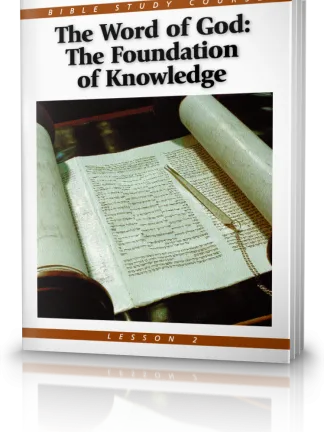The New Testament Writers
Comprehending the true role of the first-century apostles is fundamental to a correct understanding of the New Testament.
It is through these men chosen for a unique role (and capable associates such as Mark and Luke) that God brought about the creation of the 27 books comprising what we call the New Testament. After praying all night to the Father, Jesus initially chose 12 men to help Him lead and build His Church in its early years. Later some of these men, along with Paul (also called to be an apostle), began to write extensively as the Church grew and expanded. These accounts were preserved for later generations in what we call the New Testament. Fundamentally they were apostolic writings.
What is an apostle?
"And when it was day, He [Jesus] called His disciples to Himself; and from them He chose twelve whom He also named apostles" (Luke 6:13).
In simple terms an apostle means "one sent," clearly implying "with a message." Even Jesus Christ is referred to as "the Apostle" in one biblical passage (Hebrews 3:1). Says The New Bible Dictionary: "There are over eighty occurrences of the Greek word apostolos in the New Testament, seven-eighths of them in Luke and Paul. It derives from a very common verb apostello, to send . . ." (p. 48).
What was a major activity of the apostles?
"But you shall receive power when the Holy Spirit has come upon you; and you shall be witnesses to Me [or 'for Me'] in Jerusalem, and in all Judea and Samaria, and to the end of the earth" (Acts 1:8).
The 12 apostles gave a powerful firsthand confirmation of Christ's resurrection and Messiahship in the early years of the Church. Luke included portions of this remarkable witness in the book of Acts. These early eyewitnesses fulfilled a special role. Their written testimony comprises the lion's share of the 27 inspired documents that constitute the New Testament.
Remember that Jesus Christ had said: "But the Helper, the Holy Spirit, [which] the Father will send in My name, [it] will teach you all things, and bring to your remembrance all things that I said to you" (John 14:26). He added that this "Spirit of truth . . . will guide you into all truth" (John 16:13). This happened as Christ predicted it would. These inspired truths are preserved for us today in the New Testament.
What was one of the apostle Peter's major concerns near the end of his life?
"Moreover I will be careful to ensure that you always have a reminder of these things after my decease. For we did not follow cunningly devised fables when we made known to you the power and coming of our Lord Jesus Christ, but were eyewitnesses of His majesty" (2 Peter 1:15-16).
Peter wanted future followers of Christ to have a permanent reminder of the true gospel. This was accomplished by creating a written record of Christ's life and teachings plus the work of the apostles.
What was one of the chief reasons for John writing his Gospel account?
"And truly Jesus did many other signs in the presence of His disciples, which are not written in this book; but these are written that you may believe that Jesus is the Christ, the Son of God, and that believing you may have life in His name" (John 20:30-31).
"This is the disciple who testifies of these things, and wrote these things; and we know that his testimony is true" (John 21:24).
The book of John (and by extension the entire New Testament) was preserved to give later generations an accurate account of Christ's Messiahship, His words and deeds, the vital knowledge He wanted passed on to all who would follow Him.
What does Luke say about the origins of true Christianity?
"To Theophilus: Many writers have undertaken to draw up an account of the events that have taken place among us, following the traditions handed down to us by the original eyewitnesses and servants of the gospel. So I in my turn, as one who has investigated the whole course of these events in detail, have decided to write an orderly narrative for you, your excellency, so as to give you the authentic knowledge about the matters of which you have been informed" (Luke 1:1-4, Revised English Bible; compare Acts 1:1-2).
Luke was an exceptional writer and knowledgeable historian. The events of the Bible took place in the real world, and Luke in particular records important details of the apostles' time that can be verified from secular history.
What does Peter tell us about Paul's writings?
". . . As also our beloved brother Paul, according to the wisdom given to him [from God], has written to you, as also in all his epistles, speaking in them of these things, in which are some things hard to understand, which untaught and unstable people twist to their own destruction, as they do also the rest of the Scriptures" (2 Peter 3:15-16).
The apostle Peter considered some of the letters of the apostle Paul to be Scripture. Clearly, he understood them to have been inspired by God, just as the Old Testament scriptures were also inspired by our Creator.
How are we told to regard the Word of God?
"For I testify to everyone who hears the words of the prophecy of this book: If anyone adds to these things, God will add to him the plagues that are written in this book; and if anyone takes away from the words of the book of this prophecy, God shall take away his part from the Book of Life, from the holy city, and from the things which are written in this book" (Revelation 22:18-19).
God takes His Word seriously, and so should we. It is the very foundation of knowledge and not to be trifled with. In principle, these warnings extend to the rest of the books of the Bible. We should not add to, nor take away from, the words that God inspired to be preserved for all mankind.
On the other hand, do we gain God's favor if we highly esteem His Word?
"But on this one will I look: on him who is poor and of a contrite spirit, and who trembles at My word" (Isaiah 66:2).
God wants us all to respect the Bible—to learn to live by every word of God (Matthew 4:4; Luke 4:4).




